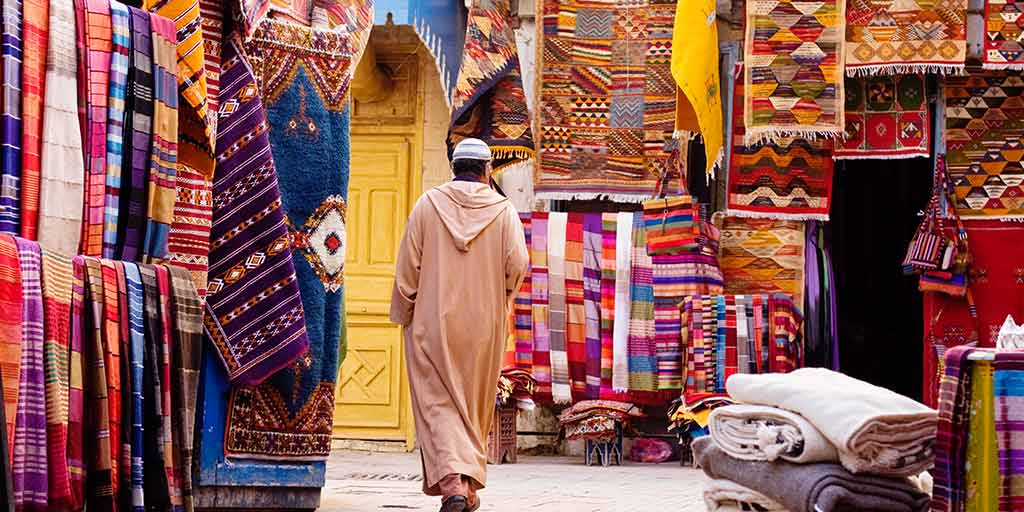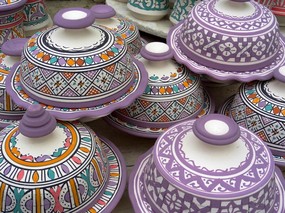So you’re planning your Morocco travel! As they say in Arabic,
Mabruk! (Congratulations). Now what? Well, before you get on the plane,
there are some things you probably want to know.
Morocco, Morrocco, Morroco? Which is correct
In English, we spell the word: Morocco. But in Arabic, there are no
vowels, so it’s really anybody’s guess. If you can pronounce it, that’s
more important than if you can spell it correctly.
Do I need any vaccinations before I go?
While this is always a personal choice, the answer about mandatory
vaccines in Morocco is NO. For many people, they prefer to err on the
side of safety (and the CDC recommendations), and get inoculated against
such fun things as rabies and hepatitis (A & B both!), but we’ve
had folks in-country before and no one has had trouble with health
issues.
The Moroccan Dirham (DEE-rahm). It’s been worth between 11¢ and 13¢ since about 2010, so it’s a good bet’s about 12¢ per Dirham.
Relatively speaking, the rate of the Dirham is good, and it’s steady,
so there shouldn’t be a lot of surprises. Granted you can pay western
prices if you go looking for them, but for the most part, Morocco is a
great travel bargain.
Remember that you will get money out of an ATM in dirham, and that
you will often be charged a foreign transaction fee of about 3 percent
by your bank, whether you get cash out or use a credit card. This dirty
little secret can add up, so make sure you budget for it. Note that some
credit cards have no foreign transaction fees. Also, if you want your
debit/credit cards to work in Morocco, or any foreign country, call your
bank before you leave! Many times, we have had guests calling back to
their home country because their transactions were declined. It’s a
fraud concern for the banks, so they are all pretty careful. Most larger
places will take credit cards; the souks (open-air markets) and smaller
shops will probably still want cash, and especially if you want to
bargain for something, cash is still king!
What language do they speak?
The Moroccans speak a fascinating mixture of Arabic, Berber, English
and French - a patois for which we have perhaps only Creole in the US as
a comparison. In a single sentence, you are likely to hear several
languages, as in, “Mabruk! Welcome, haltu redu café e thé?”
While English will likely be understood by many in the larger cities,
you may have language trouble in smaller or rural areas. In this case,
Arabic and French are probably equal fallbacks for the intrepid
traveler. Of course, if your Arabic was learned somewhere else (like
Egypt) prepare for some polite snickers!
What customs could get me in trouble if I don’t follow them?
There are probably two big things you should be concerned about here.
One is the idea of using your left hand to do anything socially
important, like eat or shake hands. Muslims, Moroccans among them, feel
that it’s unclean. Especially in public, be aware of this important
cultural distinction.
The other thing is that women often dress modestly in Moroccan
culture, and the Western tendency to want to run around in tank tops and
short when it’s hot (it’s usually hot!) is outside their custom. While
you can do it, I always like to err on the side of consideration of
local tastes, even when it’s inconvenient. So airy, flowy things that
don’t constrict but still cover the female form would be appropriate, as
well as one-piece bathing suits. It also depends on where you are, with
smaller places in the countryside being more conservative than big
cities where they’re more used to seeing a variety of people in variety
of clothes. You can always buy clothing locally, which will also give
you some fun souvenirs!





No comments:
Post a Comment